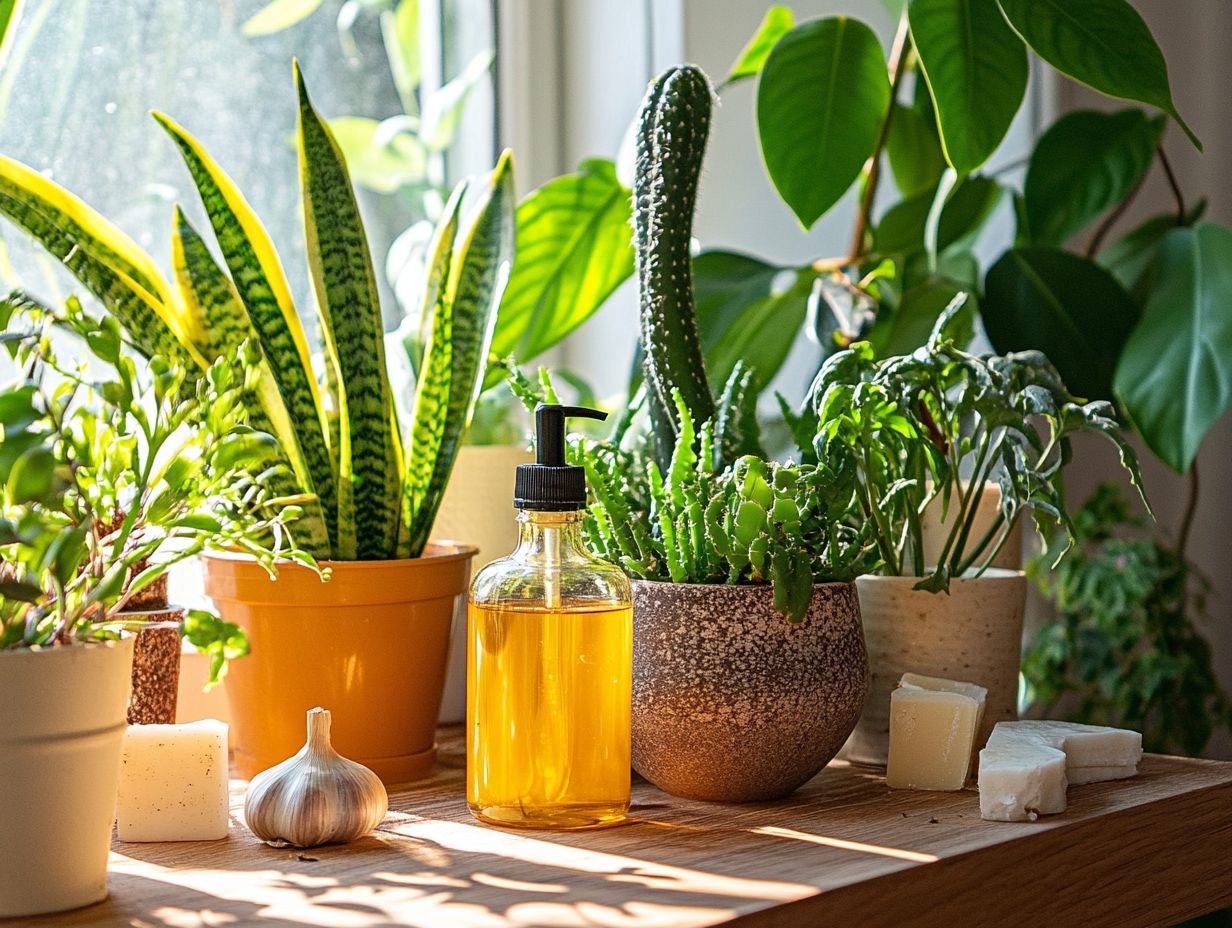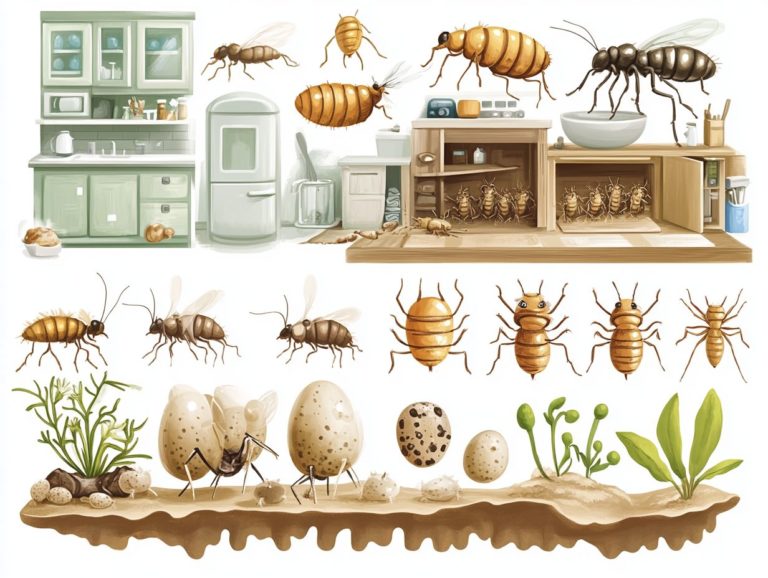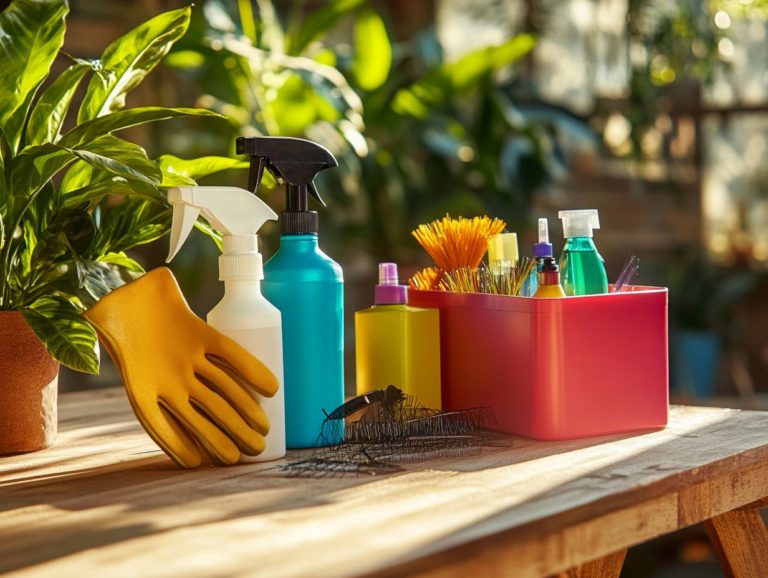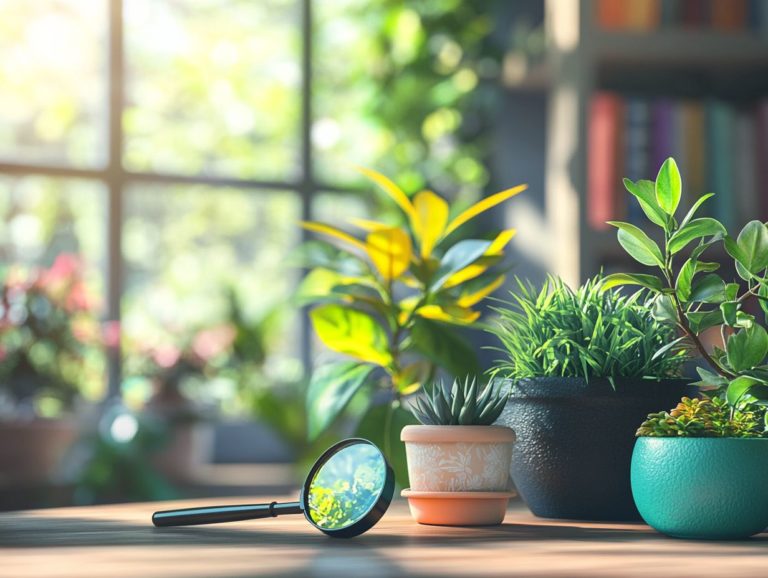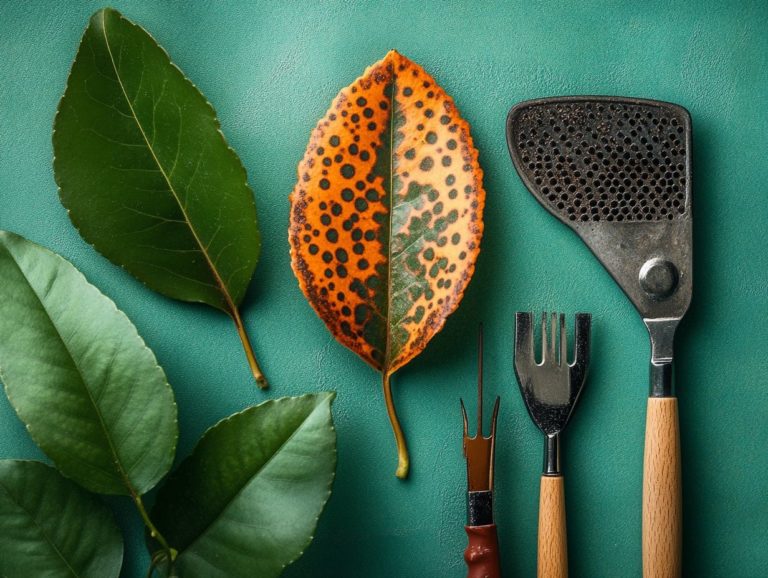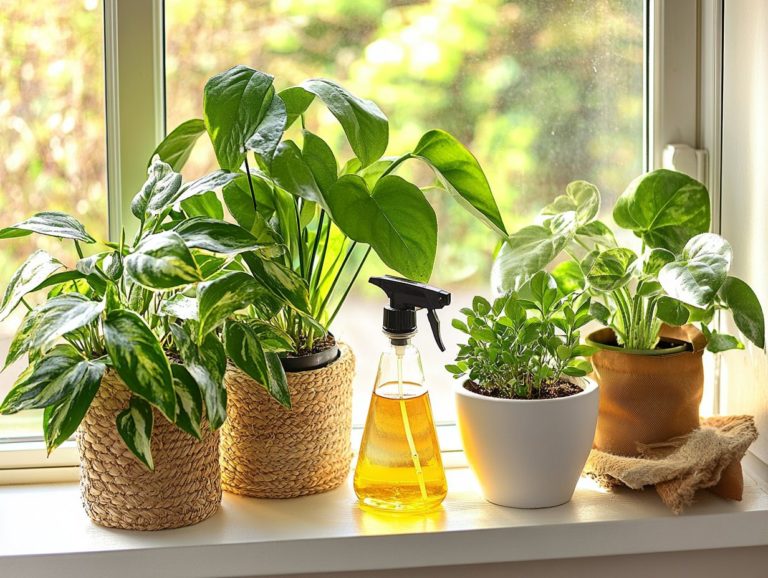Top 5 Natural Remedies for Houseplant Pests
Houseplants have a remarkable ability to enliven any space, but they can also attract those bothersome pests that threaten their well-being.
If you’ve spotted unwelcome visitors on your plants, rest assured, you re not alone. Fortunately, there are effective natural remedies at your disposal that allow you to tackle these infestations without resorting to harsh chemicals.
This article delves into the top five natural solutions such as neem oil and diatomaceous earth that can rejuvenate your plants vitality. You’ll also discover ways to prevent infestations, recognize the signs of trouble, and maintain a flourishing indoor garden.
Say goodbye to pests and welcome healthier houseplants into your home!
Contents
Key Takeaways:
- Use neem oil for a natural and effective way to repel and kill pests on your houseplants.
- Try diatomaceous earth as a non-toxic and safe option to control pests in your houseplants.
- Garlic spray can be a simple and inexpensive solution to keep pests away from your beloved houseplants.
1. Neem Oil
Neem oil is a remarkable natural pesticide that stands out for its ability to control various common plant pests, such as spider mites and mealybugs. This makes it a critical ally in your quest to maintain the health of your indoor houseplants, ensuring they flourish in a healthy environment without pests.
This natural remedy disrupts the life cycle of pests by immobilizing them and halting reproduction, which leads to a significant reduction in their populations. With its active ingredient, azadirachtin, neem oil interferes with the hormonal processes of insects, making it challenging for them to grow and feed efficiently.
Plant health enthusiasts, like Erin Marino, champion the use of neem oil not just for its impressive pest-fighting prowess, but also for its non-toxic nature, rendering it safe for both pets and the environment.
To achieve optimal results, consider applying neem oil during the early morning or late afternoon. Use a fine mist spray to thoroughly cover both the upper and lower surfaces of the leaves, ensuring that every pest is targeted and your plants’ health is maximized.
2. Diatomaceous Earth
Diatomaceous earth is a natural powder that serves as a highly effective repellent against pests like fungus gnats and clover mites, making it an essential component of your pest management strategy as an indoor gardening enthusiast.
Its fine, abrasive particles work wonders by penetrating the outer shells of these pests, leading to dehydration and ultimately, their downfall. For optimal results, you should lightly dust a thin layer of this powder around your affected plants or in areas where you frequently see pests.
This application not only helps control unwanted invaders but also fosters a healthier garden environment, reducing the risk of pest infestations and allowing your plants to truly thrive.
Incorporating diatomaceous earth into your routine gives you the power to cultivate vibrant and resilient plants without the need for harmful chemicals.
3. Garlic Spray
Garlic spray is an excellent homemade solution that acts as a natural pesticide, effectively keeping common plant pests like aphids and spider mites at bay while promoting healthy growth in your indoor garden.
This eco-friendly remedy taps into the powerful properties of garlic, which not only drives away unwanted insects but also minimizes your exposure to chemicals making it a perfect choice for creating a safe indoor environment.
To whip up this effective spray, simply blend a few cloves of garlic with water, strain the mixture, and for added adhesion, you might want to toss in a small amount of liquid soap.
Incorporating organic treatments like garlic spray into your indoor gardening routine aligns beautifully with sustainable practices and nurtures a healthier ecosystem. By using natural pest controls, you can encourage bountiful growth while lessening your dependence on synthetic chemicals.
Act now to protect your plants!
4. Essential Oils
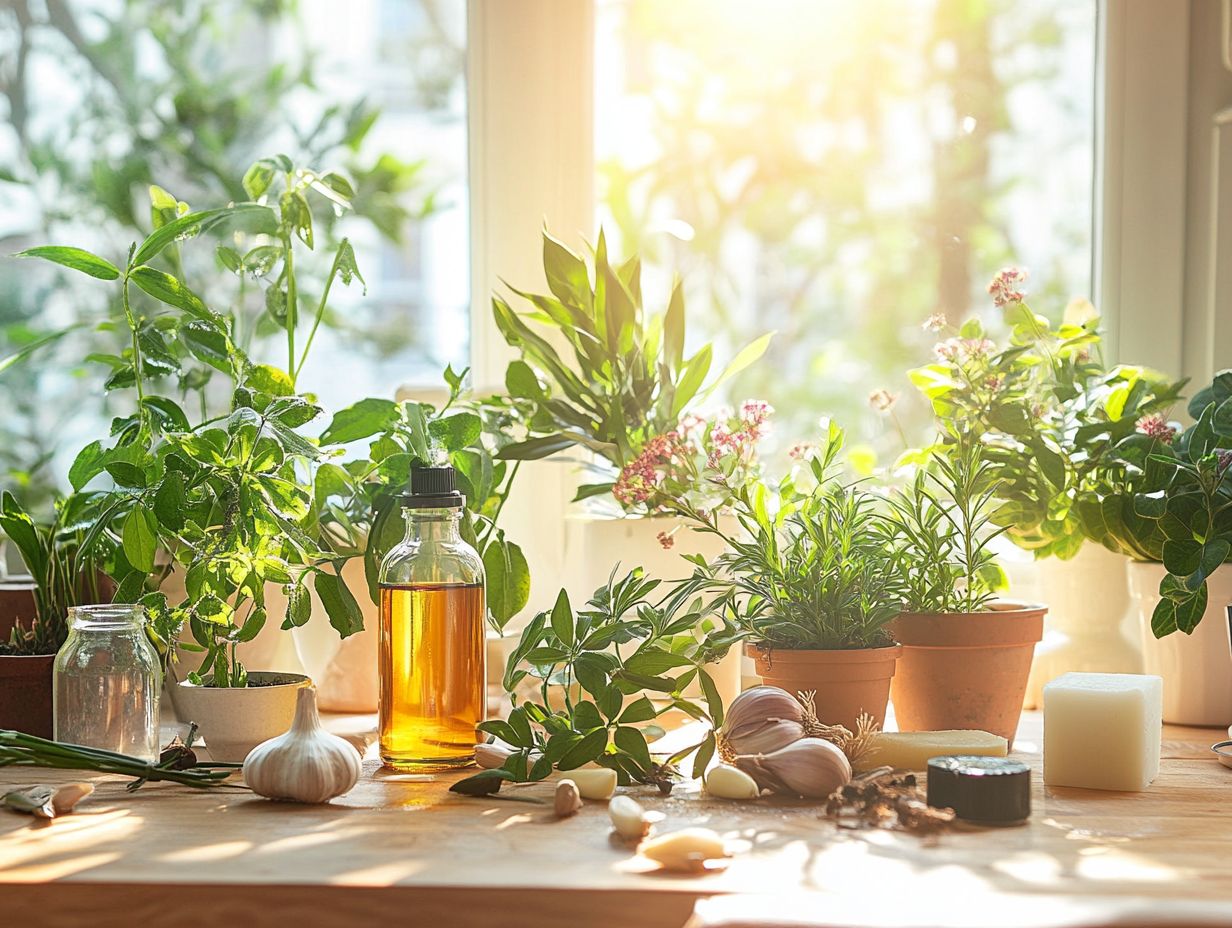
Essential oils are gaining recognition for their powerful pest control capabilities. They offer a non-toxic alternative for managing pesky indoor houseplant intruders while ensuring your plants remain healthy and thriving.
Among the myriad of options, tea tree oil shines with its antifungal and antibacterial properties. It effectively combats mold and mildew that could jeopardize your plants. Peppermint oil is another excellent choice, acting as a strong deterrent against common nuisances like spiders and aphids thanks to its robust aroma.
You can easily mix both oils with water and apply them using a spray bottle. This creates a fine mist that reaches every nook and cranny of your plants. This method keeps unwanted guests at bay and encourages healthier growth, highlighting the dual benefits of essential oils in your indoor garden.
5. Powerful Insecticidal Soap: Your Secret Weapon Against Pests
Insecticidal soap is a versatile tool for preventing plant pests, effectively targeting nuisances like mealybugs and aphids. The beauty of this solution lies in its safety for indoor houseplants and beneficial insects when applied correctly.
This eco-friendly remedy works by suffocating pests on contact. It s ideal for those who want to minimize the use of harsh chemicals. If you re looking for a DIY version, mix pure liquid soap with water at a ratio of about two tablespoons per quart. Always test the mixture on a small section of the plant first to ensure there are no adverse reactions.
For optimal effectiveness, apply the soap in the early morning or late evening to avoid potential leaf burn from the sun. This powerful soap shields your plants from infestations and helps maintain a clean and healthy indoor environment, significantly contributing to the overall vitality of your houseplants.
What Are Houseplant Pests and How Can They Be Harmful?
Houseplant pests, including spider mites, mealybugs, and fungus gnats, pose a significant threat to your indoor plants. They can cause stress, disease, or even death if not managed effectively. Understanding common plant pests and recognizing their symptoms is essential.
These pests lead to various problems. For instance, spider mites often leave behind fine webbing on leaves, robbing your plants of essential nutrients. Mealybugs excrete a sticky residue that encourages mold growth, further stressing your greenery.
To effectively combat these nuisances, early detection is key for prompt intervention. Regularly inspecting the foliage and maintaining appropriate humidity levels can minimize infestations. Simple physical measures, like wiping leaves with a damp cloth, are surprisingly effective. Additionally, utilizing the top pest control products for houseplants helps prioritize plant health while avoiding harsh chemicals.
What Are the Signs of a Houseplant Pest Infestation?
Identifying the signs of a houseplant pest infestation early is essential for effective management. Symptoms such as yellowing leaves, webbing, and sticky residue often indicate harmful pests like spider mites or aphids.
Be watchful for any shifts in your plant’s vitality, such as stunted growth or wilting leaves. Tiny holes in the foliage can signal a more serious pest issue needing your attention.
Regularly inspecting your plants and cleaning their leaves with a damp cloth or gentle soap solution can effectively remove pests and their eggs. Maintaining humidity and ensuring proper drainage are excellent strategies for nurturing your indoor garden.
Consider incorporating beneficial insects like ladybugs. They can assist in keeping harmful pest populations in check. Act now to keep your plants free from pests!
What Are Some Preventative Measures to Avoid Houseplant Pests?
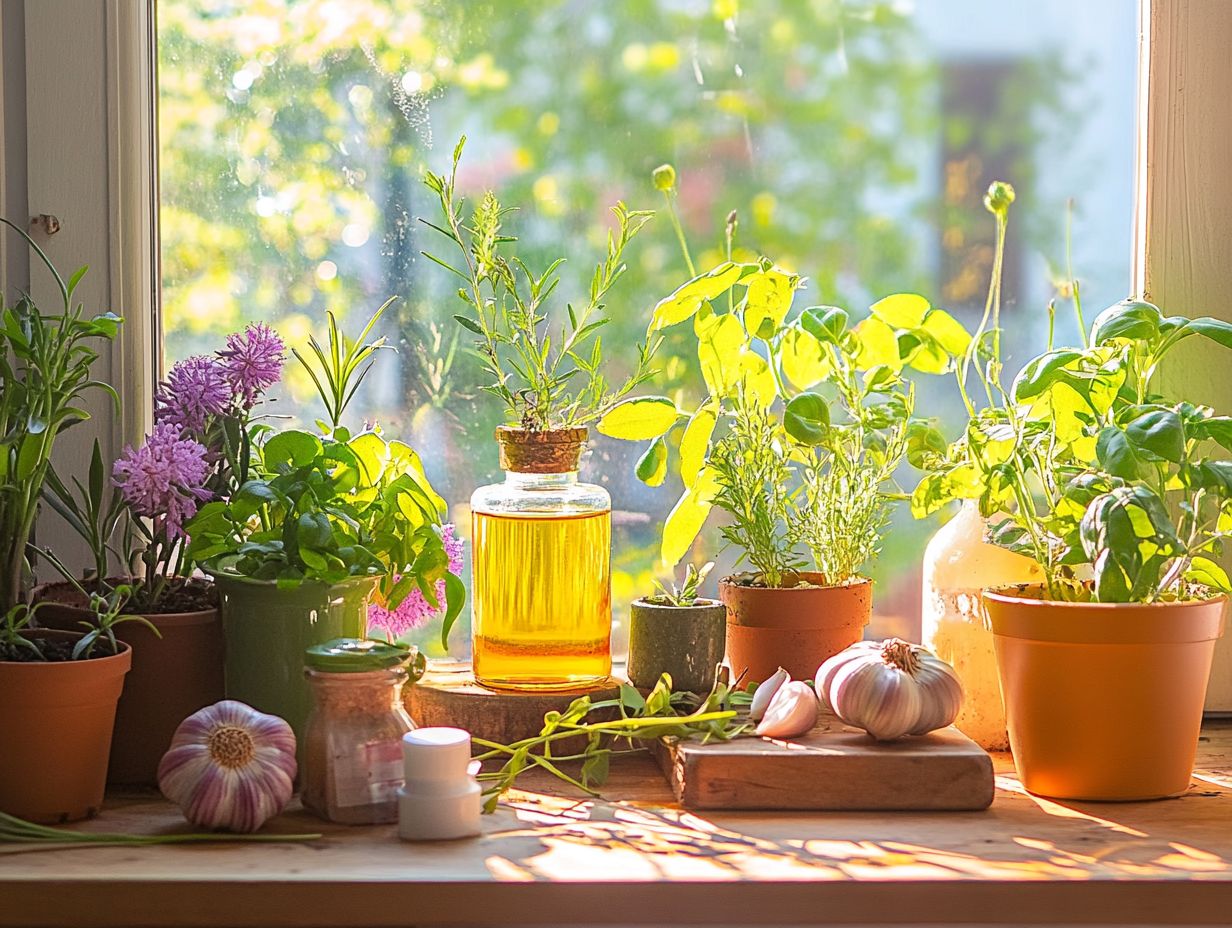
Implementing effective preventative measures is essential to avoid houseplant pests. Start by quarantining new plants and maintaining houseplant hygiene. Regularly clean your gardening tools to eliminate potential pest habitats.
Mastering proper watering techniques is crucial. Overwatering can attract unwanted pests, while underwatering may stress your plants. Monitoring soil moisture is vital for optimal growing conditions. Unhealthy plants can easily become prime targets for pests.
Utilizing effective repellents, whether natural or chemical, can proactively deter infestations. Check your plants regularly to catch any issues early. This promotes a proactive approach to maintaining their health and vitality.
How Do These Natural Remedies Work to Get Rid of Pests?
Natural remedies such as neem oil, diatomaceous earth, and homemade bug sprays for indoor plants are allies in the battle against pests. They disrupt pest life cycles and deter infestations.
Neem oil works wonders by affecting how insects grow and reproduce, especially against pesky aphids and spider mites.
Diatomaceous earth, made up of tiny fossilized algae, serves as a physical barrier. It harms the exoskeletons of crawling pests, leading to dehydration.
Homemade sprays, often made from soap and essential oils, create a suffocating environment for unwelcome guests like mealybugs and whiteflies. For the best results, apply these remedies early in the morning or late in the evening to minimize the risk of plant burn.
Are There Any Risks or Side Effects to Using These Remedies?
While natural remedies are generally safe, it’s essential to stay informed about potential risks or side effects such as plant stress or adverse reactions from improper application.
To reap the benefits while minimizing drawbacks, understand the right application methods and dosages. Even harmless substances can backfire if overused, resulting in nutrient imbalances or harm to beneficial insects.
Regularly monitor your plants for signs of distress or improvement. This proactive approach supports healthy plants and ensures that natural remedies tackle pests without jeopardizing your garden’s health.
How Can One Maintain a Pest-Free Environment for Houseplants?
Maintaining a pest-free haven for your houseplants requires a blend of vigilant pest management strategies. Clean the leaves of your plants, keep the garden tidy, and follow proper maintenance routines.
To boost the prosperity of your indoor garden, adopt specific watering practices to prevent excess moisture. Standing water invites unwanted pests. Adequate soil management is also key; use sterile potting mixes to reduce disease and pest risks.
Regular inspections are paramount. Every few weeks, check both the foliage and soil for early signs of pest infestations. Don t underestimate the power of preventive measures. Introducing beneficial insects and using organic repellents can add extra protection to your green sanctuary.
By consistently following these strategies, including cleaning gardening tools and quarantining new plants, you can cultivate a thriving, pest-free indoor oasis.
Frequently Asked Questions
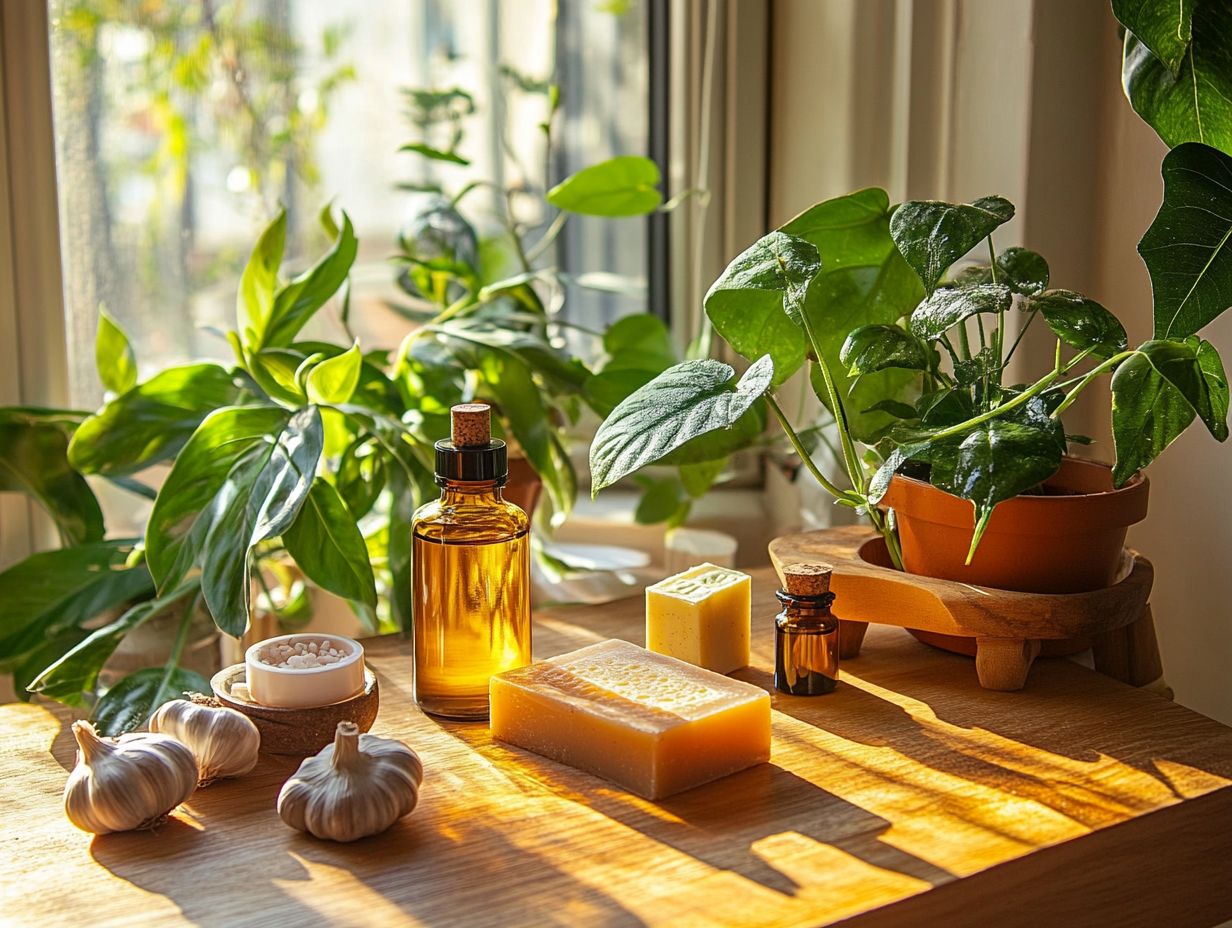
What are the top 5 natural remedies for houseplant pests?
Neem oil, diatomaceous earth, DIY insecticidal soap, garlic spray, and vinegar solution are the top 5 natural remedies for houseplant pests.
How does neem oil work?
Neem oil disrupts the growth and reproduction of pests. This makes it a powerful natural insecticide for your houseplants.
What is diatomaceous earth?
Diatomaceous earth is a powder made from fossilized algae. Its sharp edges cut through the exoskeleton of pests, causing dehydration and death. It is often used for pest control in gardens and homes.
Can I make my own insecticidal soap?
Yes! Mix 1 tablespoon of liquid soap with 1 liter of water. This solution effectively kills pests on houseplants.
How does garlic spray work?
Garlic contains sulfur compounds that repel pests. Mix crushed garlic cloves with water, and spray on your plants to help eliminate bugs.
Is a vinegar solution effective?
Vinegar is acidic, making it a powerful ally against pests. Mix equal parts water and vinegar, but test it on a small area first to protect sensitive plants.

